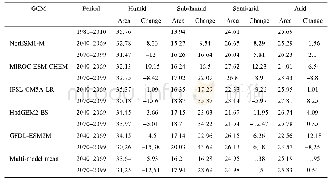《Table 2.TPP Members’Transitional Periods for IP Protection Commitments》
 提示:宽带有限、当前游客访问压缩模式
提示:宽带有限、当前游客访问压缩模式
本系列图表出处文件名:随高清版一同展现
《How to Evaluate and Respond to IP Provisions under the TPP》
In the short run,IP provisions under the TPP will not significantly affect China’s economic growth for the following reasons.First,the entry into force of the TPP itself requires parties to secure the approval of their respective parliament(or congress),which takes at least two years.Second,the TPP allows members a certain transitional period to amend their IP laws to ensure compliance with relevant requirements of the TPP.The transition period for developing countries is generally 3–5 years.Regarding IP provisions in some sensitive areas,such as biologics and undisclosed data,countries like Vietnam have been granted a transitional period of as long as 10 years.As a compromise on copyright protection of the developed parties,New Zealand was also granted a60-year copyright exemption within eight years of its entry into force of the TPP.Table 2 lists the TPP parties’transitional periods for IP provisions.
| 图表编号 | XD00212160200 严禁用于非法目的 |
|---|---|
| 绘制时间 | 2018.09.01 |
| 作者 | Cheryl Xiaoning Long |
| 绘制单位 | Xiamen University |
| 更多格式 | 高清、无水印(增值服务) |
查看“Table 2.TPP Members’Transitional Periods for IP Protection Commitments”的人还看了
-

- Table 3 Percentage areas (%) of arid/humid climate regions (AHCRs) in China for the periods 2040–2069 and2070–2099 under





